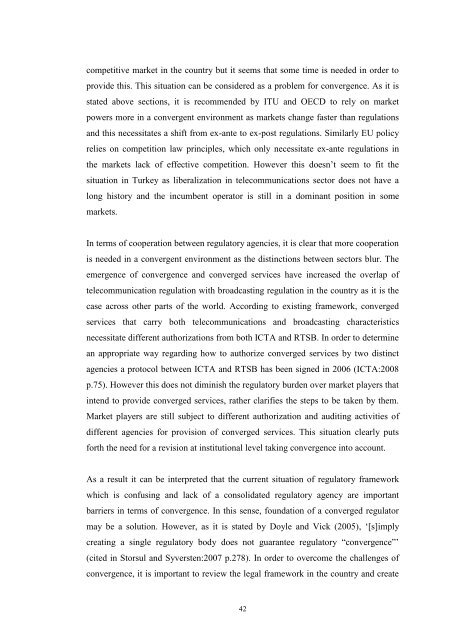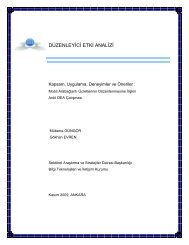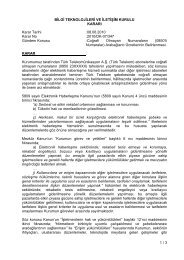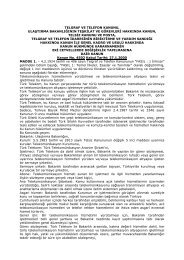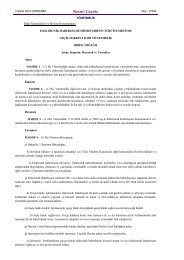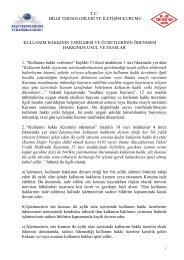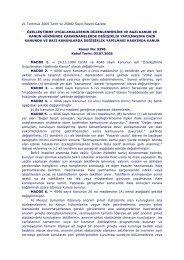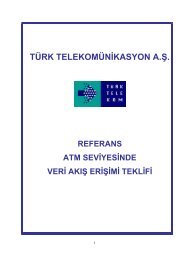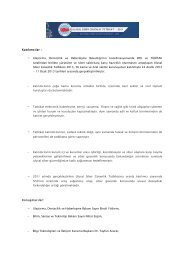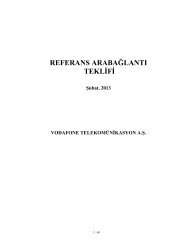city university london school of social sciences convergence of ...
city university london school of social sciences convergence of ...
city university london school of social sciences convergence of ...
Create successful ePaper yourself
Turn your PDF publications into a flip-book with our unique Google optimized e-Paper software.
competitive market in the country but it seems that some time is needed in order toprovide this. This situation can be considered as a problem for <strong>convergence</strong>. As it isstated above sections, it is recommended by ITU and OECD to rely on marketpowers more in a convergent environment as markets change faster than regulationsand this necessitates a shift from ex-ante to ex-post regulations. Similarly EU policyrelies on competition law principles, which only necessitate ex-ante regulations inthe markets lack <strong>of</strong> effective competition. However this doesn‟t seem to fit thesituation in Turkey as liberalization in telecommunications sector does not have along history and the incumbent operator is still in a dominant position in somemarkets.In terms <strong>of</strong> cooperation between regulatory agencies, it is clear that more cooperationis needed in a convergent environment as the distinctions between sectors blur. Theemergence <strong>of</strong> <strong>convergence</strong> and converged services have increased the overlap <strong>of</strong>telecommunication regulation with broadcasting regulation in the country as it is thecase across other parts <strong>of</strong> the world. According to existing framework, convergedservices that carry both telecommunications and broadcasting characteristicsnecessitate different authorizations from both ICTA and RTSB. In order to determinean appropriate way regarding how to authorize converged services by two distinctagencies a protocol between ICTA and RTSB has been signed in 2006 (ICTA:2008p.75). However this does not diminish the regulatory burden over market players thatintend to provide converged services, rather clarifies the steps to be taken by them.Market players are still subject to different authorization and auditing activities <strong>of</strong>different agencies for provision <strong>of</strong> converged services. This situation clearly putsforth the need for a revision at institutional level taking <strong>convergence</strong> into account.As a result it can be interpreted that the current situation <strong>of</strong> regulatory frameworkwhich is confusing and lack <strong>of</strong> a consolidated regulatory agency are importantbarriers in terms <strong>of</strong> <strong>convergence</strong>. In this sense, foundation <strong>of</strong> a converged regulatormay be a solution. However, as it is stated by Doyle and Vick (2005), „[s]implycreating a single regulatory body does not guarantee regulatory “<strong>convergence</strong>”‟(cited in Storsul and Syversten:2007 p.278). In order to overcome the challenges <strong>of</strong><strong>convergence</strong>, it is important to review the legal framework in the country and create42


